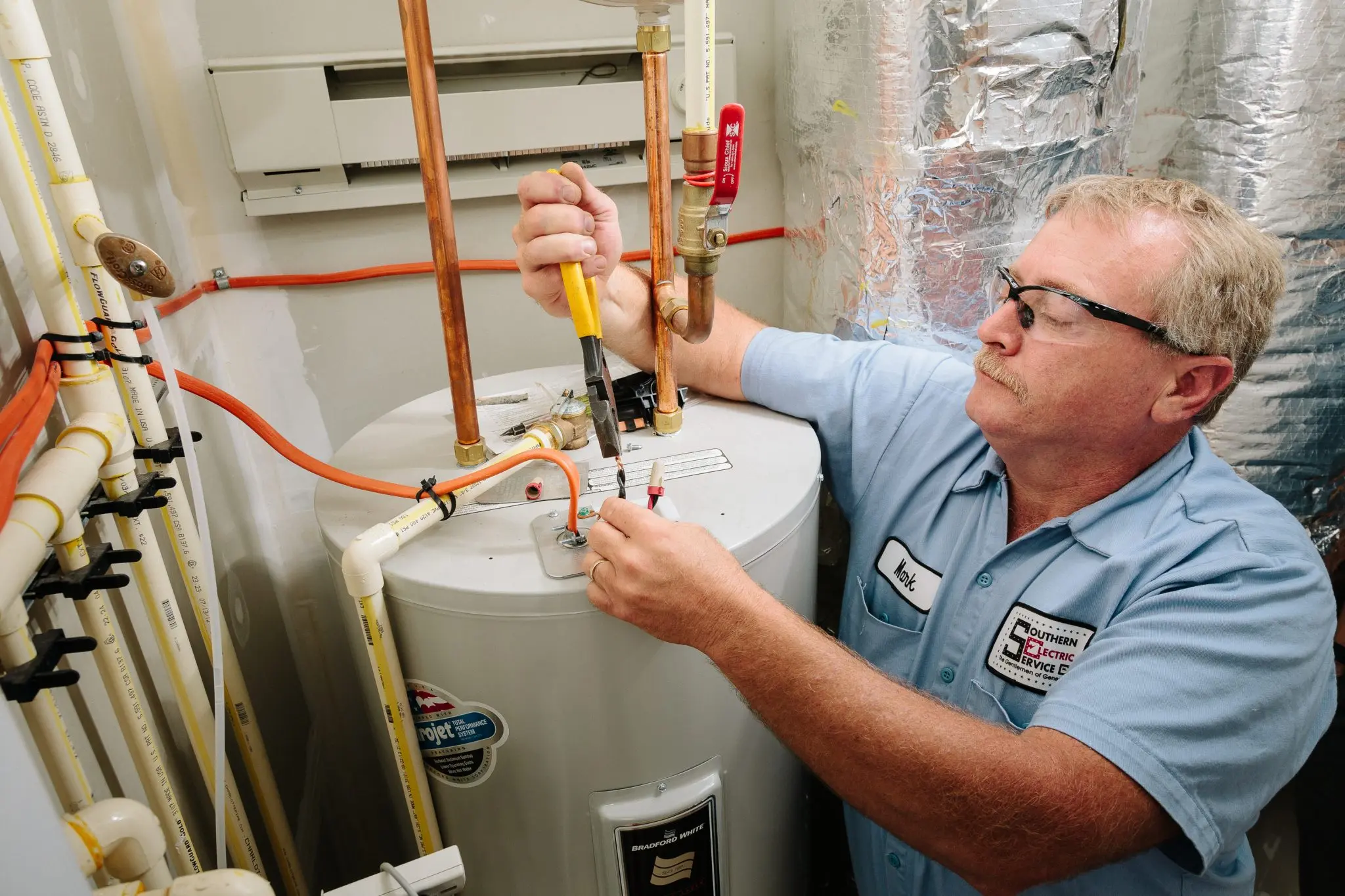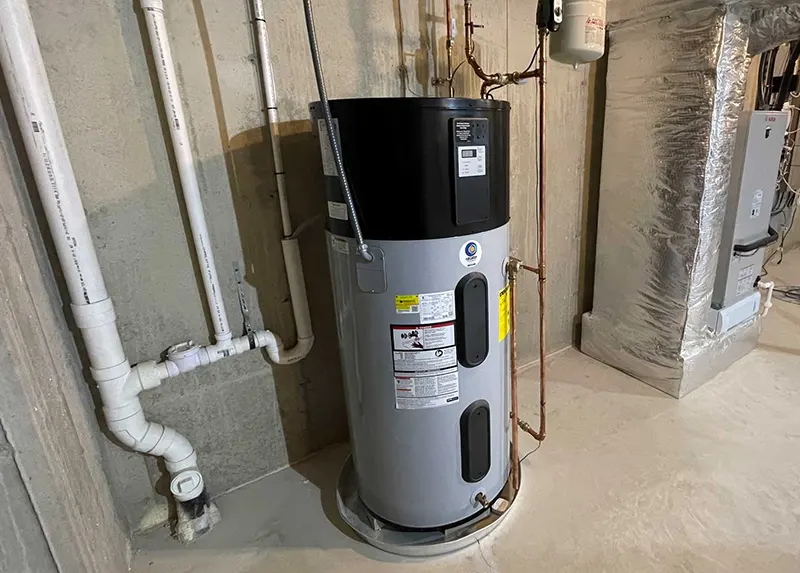Expert Water Heater Installation Services for Efficient Home Heating
Expert Water Heater Installation Services for Efficient Home Heating
Blog Article
Total Guide to Water Heating SystemInstallation and Substitute
Recognizing the complexities of hot water heater setup and substitute is critical for home owners looking for to make sure effectiveness and integrity in their warm water supply. From choosing the ideal type and size to implementing a smooth installment process, numerous variables need to be thought about to prevent typical pitfalls. This overview will provide you with the essential actions and understandings to navigate the complexities of this home enhancement task, while likewise highlighting essential upkeep techniques that can lengthen the life of your system. As you explore these aspects, you might discover yourself reassessing your existing setup and determining areas for renovation.
Sorts Of Water Heating Units
When thinking about hot water heater installation and substitute, it is essential to understand the various sorts of hot water heater available out there. The most typical kinds consist of storage tank hot water heater, tankless hot water heater, heatpump water heaters, and solar water heating systems.
Tank water heating units are traditional systems that save a particular volume of hot water, making them readily available when required. In contrast, tankless water heating units give hot water on need, eliminating the requirement for storage.
Warmth pump water heating systems utilize electrical energy to move warmth from the air or ground to heat water, supplying significant power cost savings however requiring even more space and particular installment problems. Last but not least, solar hot water heater harness solar power to warmth water, offering an environment-friendly alternative with potential long-lasting cost savings, although they often require a back-up system for gloomy days.
Recognizing these choices makes certain educated choices concerning setup and substitute, satisfying details requirements and choices.
Selecting the Right Size
Choosing the suitable size for a hot water heater is important to guarantee optimal performance and efficiency. A device that is also small will certainly struggle to meet household demands, leading to inconsistent warm water schedule and increased energy consumption. Conversely, an extra-large water heater can lead to unneeded energy waste and higher utility expenses.
To identify the right dimension, think about the house's peak warm water use. This can be computed based upon the number of owners and their common warm water demands. A family members of four might require a water heating unit with an ability of 50 to 80 gallons, depending on the usage patterns, such as synchronised showers and washing.
Additionally, assess the healing price, which measures exactly how quickly a heating unit can restore hot water after it has actually been made use of. For tankless designs, concentrate on the flow rate, gauged in gallons per minute (GPM), to ensure it satisfies the home's simultaneous need.

Installation Refine Introduction

Next, the old unit needs to be separated and gotten rid of, making sure to adhere to regional codes and policies concerning disposal. When the old device is out, the brand-new hot water heater can be positioned in position. This step involves attaching the water system lines, making sure that all fittings are leak-free and secure.
After developing water connections, it's vital to attach the power supply, whether electric or gas, adhering to the producer's guidelines meticulously. When all connections are made, the system needs to be full of water, and the power can be transformed back on. It's vital to check for leaks and make certain the water heating unit is functioning properly before completing the installation process.
Common Setup Mistakes

An additional regular error is neglecting to adhere to regional codes and policies. Failing to adhere to these standards can not just lead to safety and security risks however might additionally result in costly fines or the requirement for pricey reinstallation.
Stopping working to protect connections or using the wrong kind of installations can lead to leakages and water damages. By preventing these typical installation errors, home owners can ensure their water heating unit runs safely and effectively, making best use of performance and longevity.
Maintenance Tips for Longevity
Appropriate upkeep of a water heating system useful site is vital for its durability and optimum efficiency. Regular evaluations and servicing can prevent expensive repair services and extend the appliance's lifespan. Begin by examining the temperature level setting; it must commonly be established in between 120 ° F and 140 ° F for optimum energy effectiveness and safety.
Every 6 months, flush the container to remove debris buildup, which can harm home heating effectiveness and trigger rust. To do this, turn Click This Link off the heating system, link a hose to the drainpipe valve, and let the water run till it is clear.
Anode poles need to be checked yearly and changed when they are worn away. These poles help stop container corrosion by bring in corrosive elements in the water.
Furthermore, examine the stress safety valve frequently to guarantee it is functioning properly. This shutoff is essential for avoiding too much stress buildup within the storage tank.
Last but not least, think about setting up a professional upkeep check every couple of years for extensive assessments and maintenance. By adhering to these maintenance pointers, homeowners can substantially boost the efficiency, security, and life expectancy of their water heaters, guaranteeing trustworthy warm water for several years ahead.
Final Thought
In final thought, correct installment and upkeep of water heaters are essential for making certain efficiency and longevity. By understanding these important aspects, home owners can attain a trusted warm water supply while reducing potential concerns related to water heating unit operation.
Comprehending the ins and outs of water heater setup and replacement is essential for property owners looking for to ensure effectiveness and reliability in their warm water supply.Container water heating units are standard systems that keep a details quantity of hot water, making them conveniently offered when required. In contrast, tankless water heating systems provide hot water on need, getting rid of the requirement for storage. Selecting a water heater that is either too little or as well big can lead to inadequacies, resulting in inadequate warm water supply or extreme energy intake.
By recognizing these crucial facets, homeowners click for more info can attain a reputable hot water supply while minimizing potential concerns associated to water heater operation. water heater installation.
Report this page